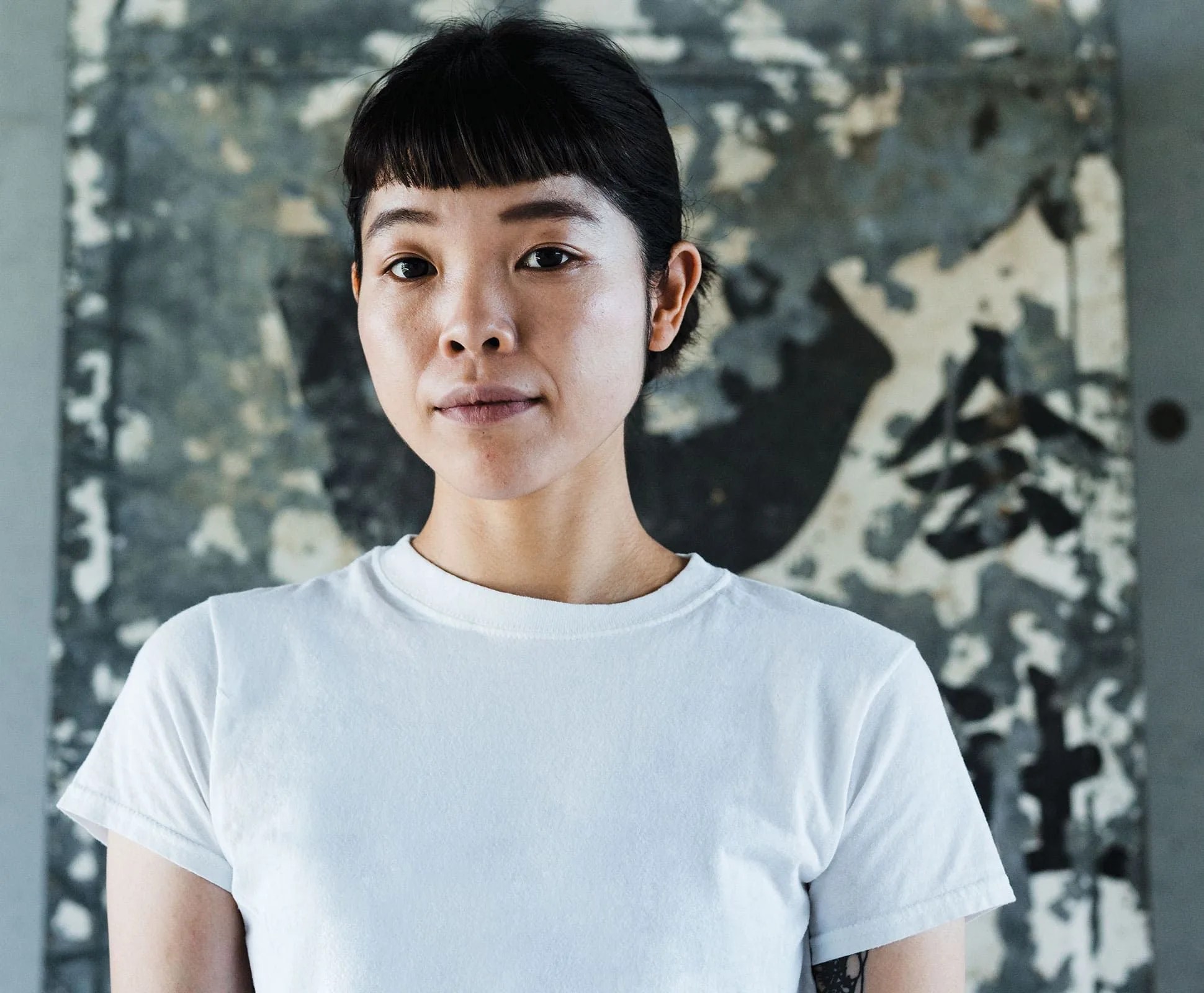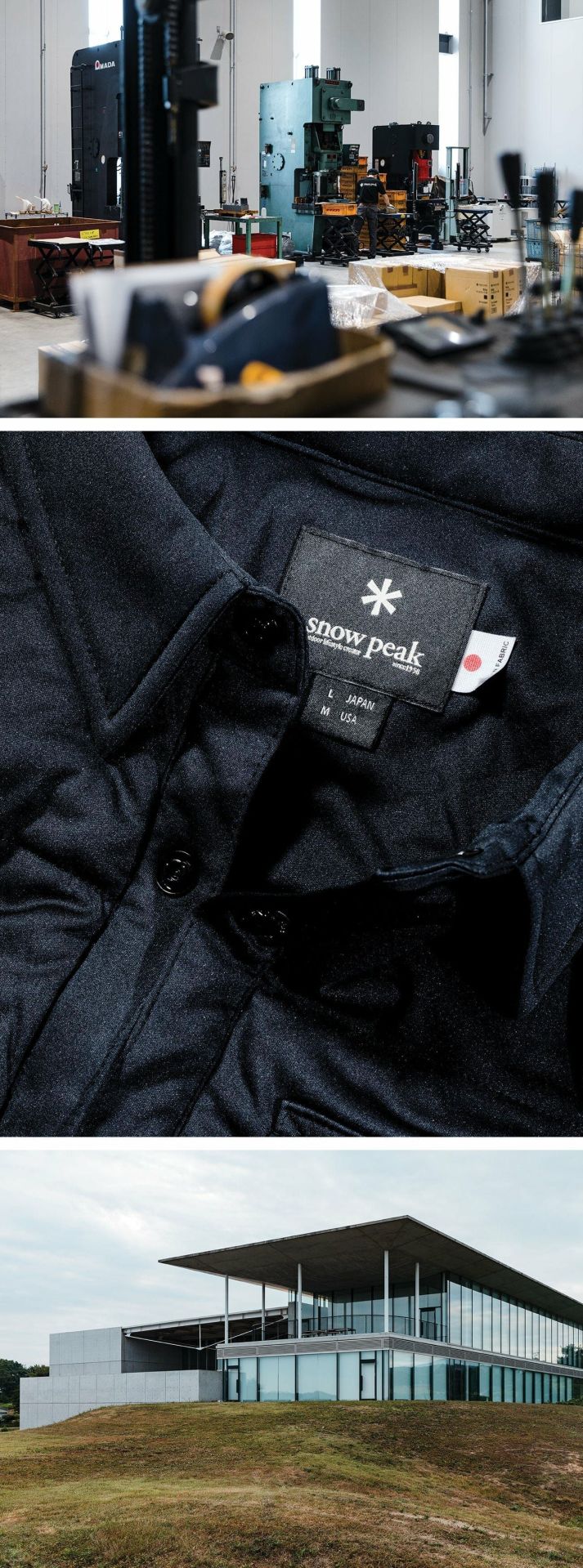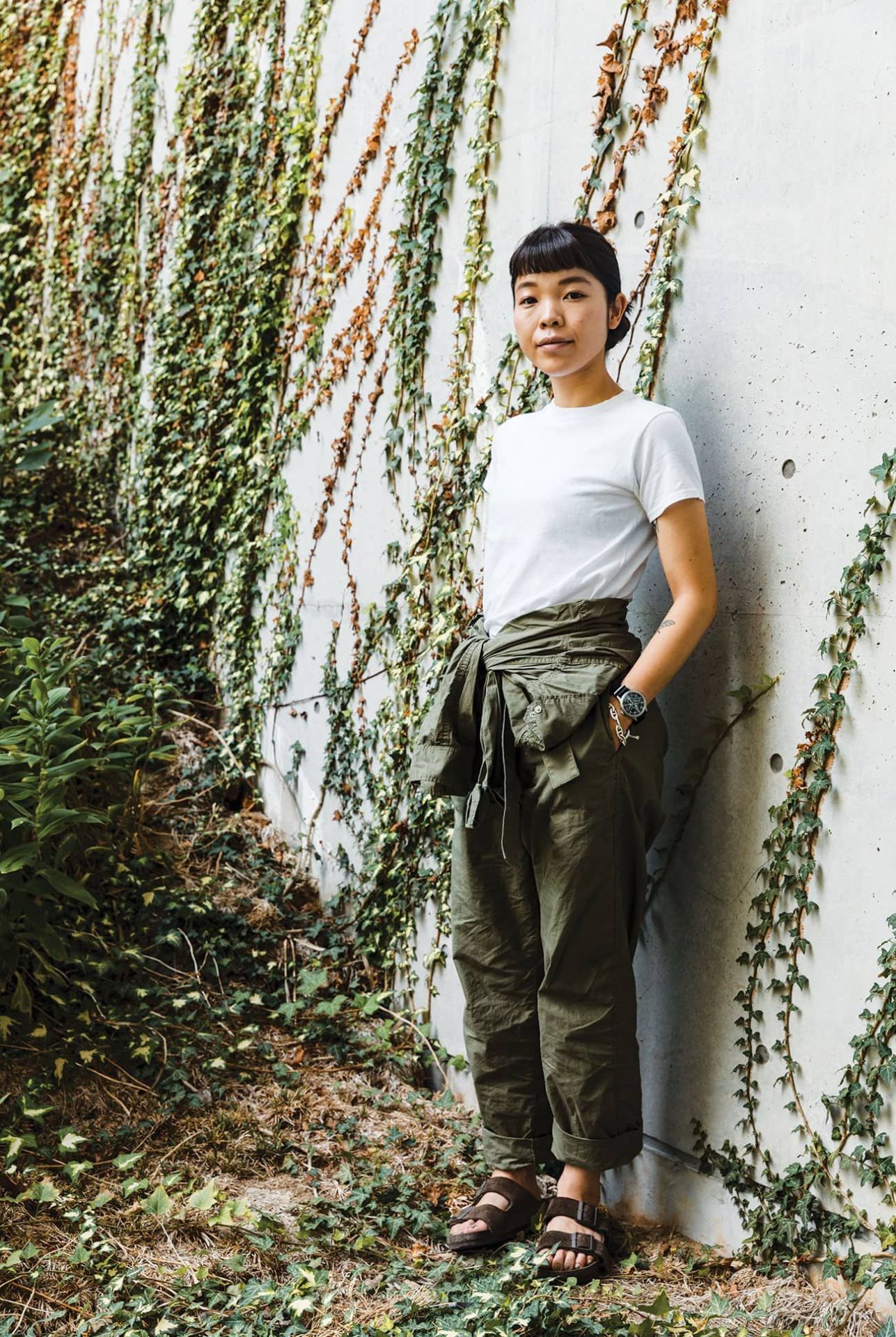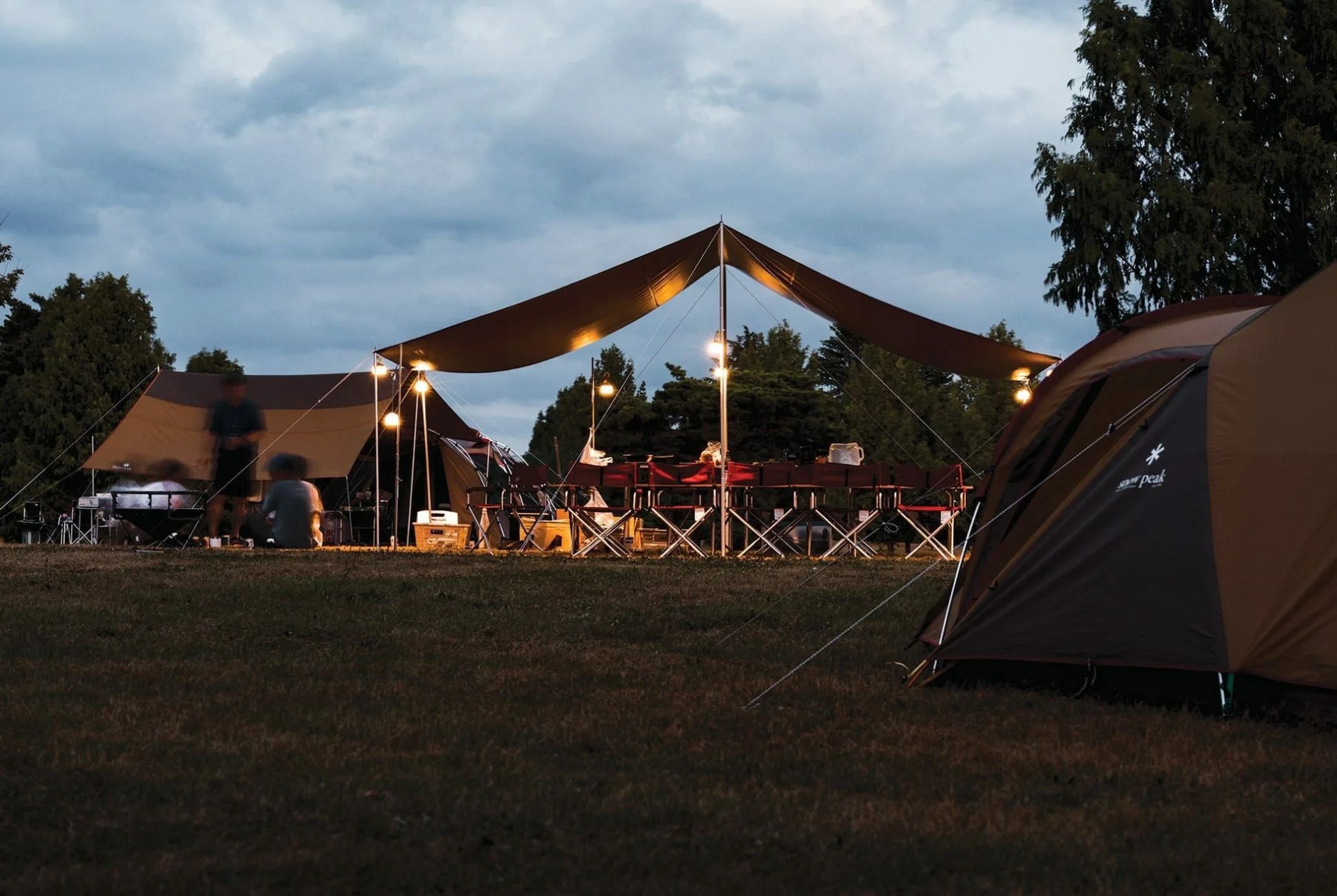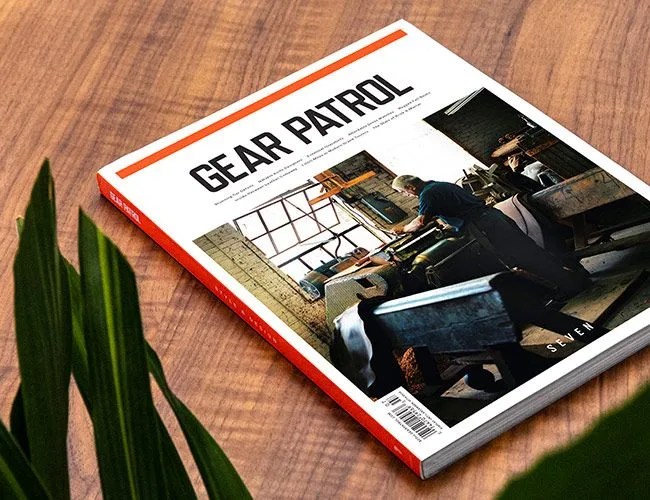From Issue Seven of Gear Patrol Magazine.
Lisa Yamai was blushing. Earlier in the night, the heiress to Snow Peak, the largest camping brand in Japan and started by Lisa’s grandfather, swept in and manhandled our campsite. First, she finagled a finicky camp stove into working shape and then went around lighting fires with a jet-engine-like blazing torch. After dinner, we settled around a stainless steel fireplace under a sky full of stars in Niigata prefecture in Japan, a region anchored by 8,000-foot mountains, rice paddy-filled valleys and, well, Snow Peak’s headquarters.
I wanted to travel to Japan to find out more about the brand — whose footprint in the U.S. is small, but highly regarded for its impeccable aesthetic and smart, functional design — as it celebrates its 60th anniversary. Snow Peak’s success is predicated on products like beautiful and modern camp-kitchen cookware, stainless steel camp stoves, minimalist dining setups, tarps and tents. While the U.S. only makes up around 20 percent of the brand’s total sales, you’ll find that at Japan’s campgrounds, Snow Peak is one of the major players, with Coleman and Montbell thrown into the mix. The brand, however, is not lost on America’s camping-obsessed, even with all of the lower-priced competition; over the years, I’ve seen many a diehard camper unveil their few bamboo-and-steel Snow Peak products with special care and presentation, like artifacts to be revered. Suffice it to say they have a following.
Snow Peak was originally founded under the name Yamai Shoten in 1958 by 26-year-old Yukio Yamai, an avid rock climber. It’s no coincidence that this was only a year after a young Yvon Chouinard started forging his own pitons in Southern California and founded Chouinard Equipment, Ltd., the predecessor to Patagonia. At the time, the world had a heightening obsession with rock climbing. There was a growing fever over who could tackle the faces of Half Dome and El Capitan in Yosemite Valley first, while, back home in Japan, outdoor enthusiasts were celebrating the first ascent of the Himalayas’ Mt. Manaslu, the world’s eighth tallest peak, by a Japanese team.
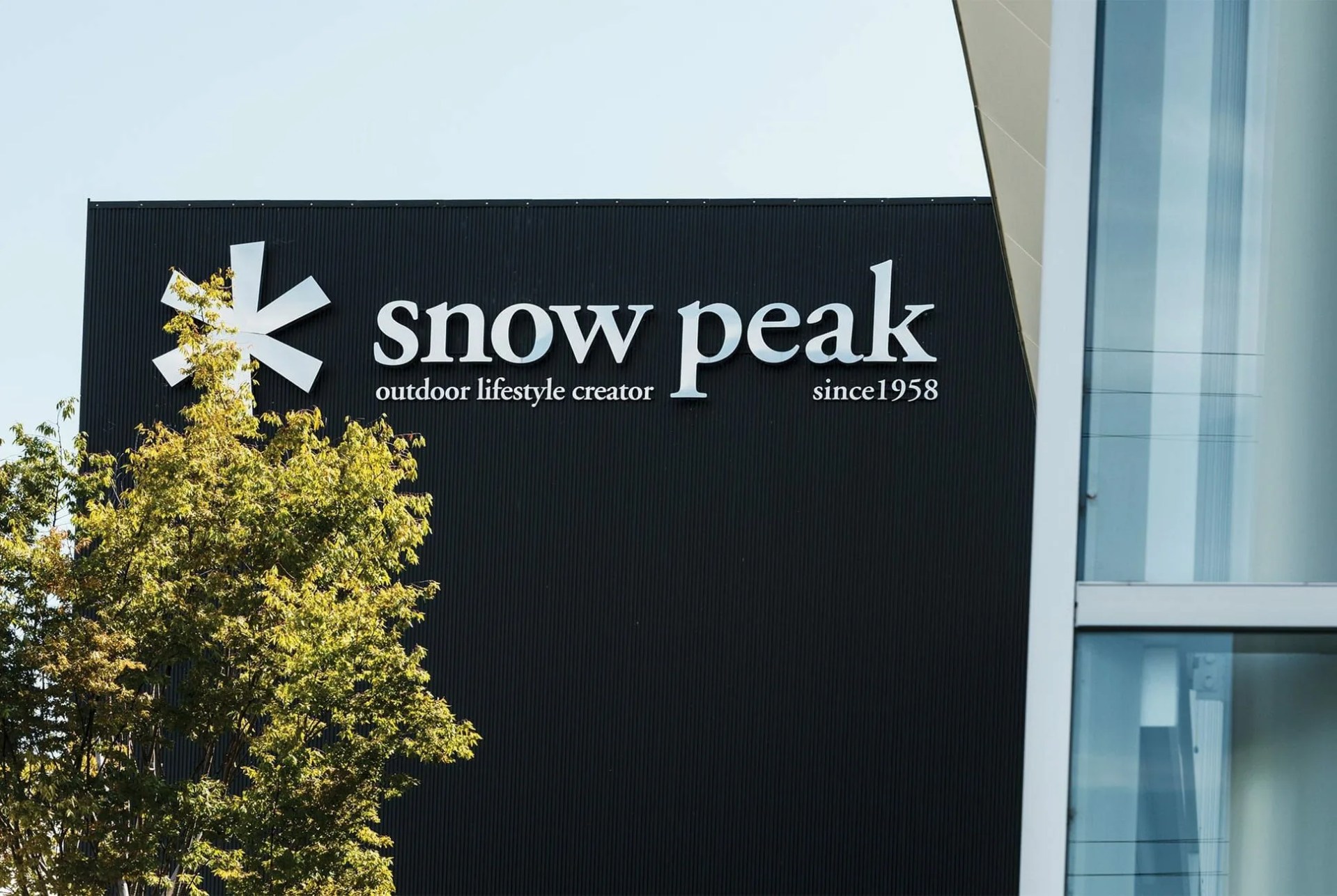
Yukio’s location in Niigata’s Tsubame-Sanjo, an area rife with factories focused on metalwork, placed him in a prime location for professional success. He began by designing and selling his own pitons and crampons made from titanium, stainless steel and aluminum. He also designed climbing apparel that he had custom made by a tailor in town, and which he later sold to his friends separately from the Yamako brand. Much of Snow Peak’s success, though, can be attributed to Yukio’s son, Tohru Yamai, who came into the business in the mid-’80s, just as SUVs were on the rise. Tohru could sense that his community in Tokyo was craving nature, so he envisioned a camping experience that capitalized on the growing market of outdoor-oriented SUVs — one that required less labor than the school-camping trips of his youth, which involved digging a crude trench for water flow around two-piece tent setups. It was only a few years later, in the early ’90s, that Yukio and Tohru became almost single-handedly responsible for inventing Japanese outdoor camping culture as a whole.
Today, Snow Peak’s main headquarters, which is only five years old, is home to 100 public campsites and its very own gear-testing field on 41 acres of rolling grassland spliced from a neighboring golf course. Two concrete-and-glass buildings crown the property. The larger one holds offices and conference rooms, while the smaller one houses a store and a camping hub with gear rentals and vending machines filled with green tea and canned coffee. An outbuilding houses clean bathrooms — complete with Japan’s famously high-tech heated toilets — and large stainless steel sink basins for washing camp dishes. The site’s facilities are right in line with the brand’s ethos — set by Tohru thirty years ago — that camping doesn’t have to mean roughing it.
